
Paolo Veronese Venus and Adonis 1582 Canvas Gallery Etsy
06:14, 27 September 2022 5,472 × 7,304 (10.4 MB) Maltaper ( talk | contribs) pattypan 22.03 You cannot overwrite this file. File usage on Commons The following 4 pages use this file: Paolo Veronese catalogue raisonné, 1968 Marini Paolo Veronese catalogue raisonné, 1976 Pignatti Paolo Veronese catalogue raisonné, 1991 Pignatti and Pedrocco

Antonio Canova Venus and Adonis Statue, Greek statues, Famous sculptures
Venus and Adonis is a 1562 oil painting on canvas by Paolo Veronese, now held at the Staatliche Kunstsammlungen in Augsburg, Germany. [1] The painting has a mythological subject, showing the moment at which Venus tries to stop Adonis from going hunting after having a premonition of his death. [1]
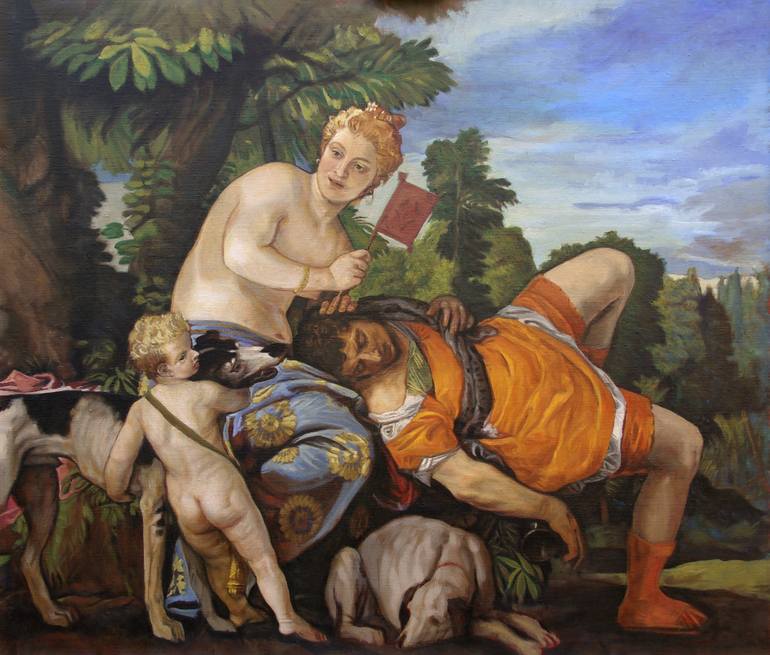
Venus and Adonis, Paolo Veronese Painting by Daniel Dacio Saatchi Art
Venus and Adonis Ca. 1580. Oil on canvas. Room 026 Like its pair, Cephalus and Procris (Strasbourg Museum, inv. 634, oil on canvas, 162 x 185 cm), this canvas illustrates a passage from the Metamorphoses by the Roman poet Ovid. Both stories involve love cut short by death, in this case that of Adonis.
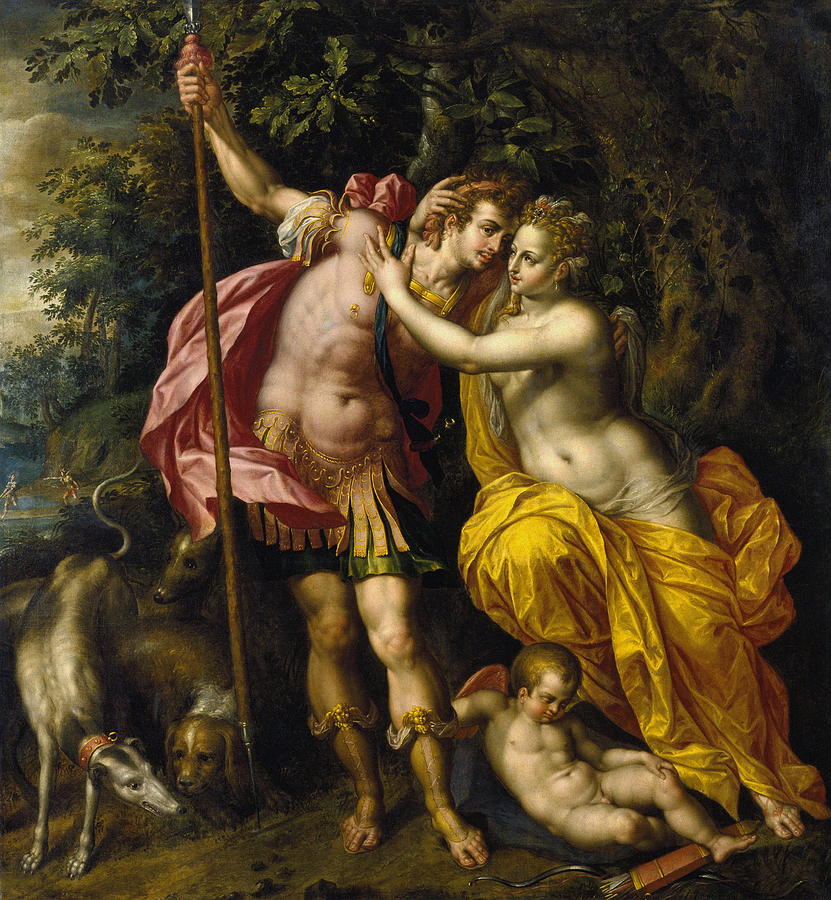
Venus And Adonis Painting by Hendrick De Clerck Pixels
Directed by: Meryam Joobeur. Written by: Meryam Joobeur. Produced by: Maria Gracia Turgeon, Habib Attia. Mohamed is deeply shaken when his oldest son Malik returns home after a long journey with a mysterious new wife. 'Venus and Adonis with Cupid' was created by Paolo Veronese in Mannerism (Late Renaissance) style.

Francisco de Goya Vénus et Adonis Art, Rennaissance art, Spanish art
Venus and Adonis is a painting by the Italian late Mannerist artist Paolo Veronese, executed in the early 1580s, now in the Museo del Prado, in Madrid. It is an oil on canvas and its dimensions are 162 cm × 191 cm (64 in × 75 in). The original painting was enlarged by 50 cm in the upper border in the 18th century.

El dolor en "Venus y Adonis", de Paolo Veronese. Por Alejandro Vergara YouTube
Venus and Adonis is a 1562 oil painting on canvas by Paolo Veronese, now held at the Staatliche Kunstsammlungen in Augsburg, Germany. Venus and Adonis (1562) by Paolo Veronese The painting has a mythological subject, showing the moment at which Venus tries to stop Adonis from going hunting after having a premonition of his death.
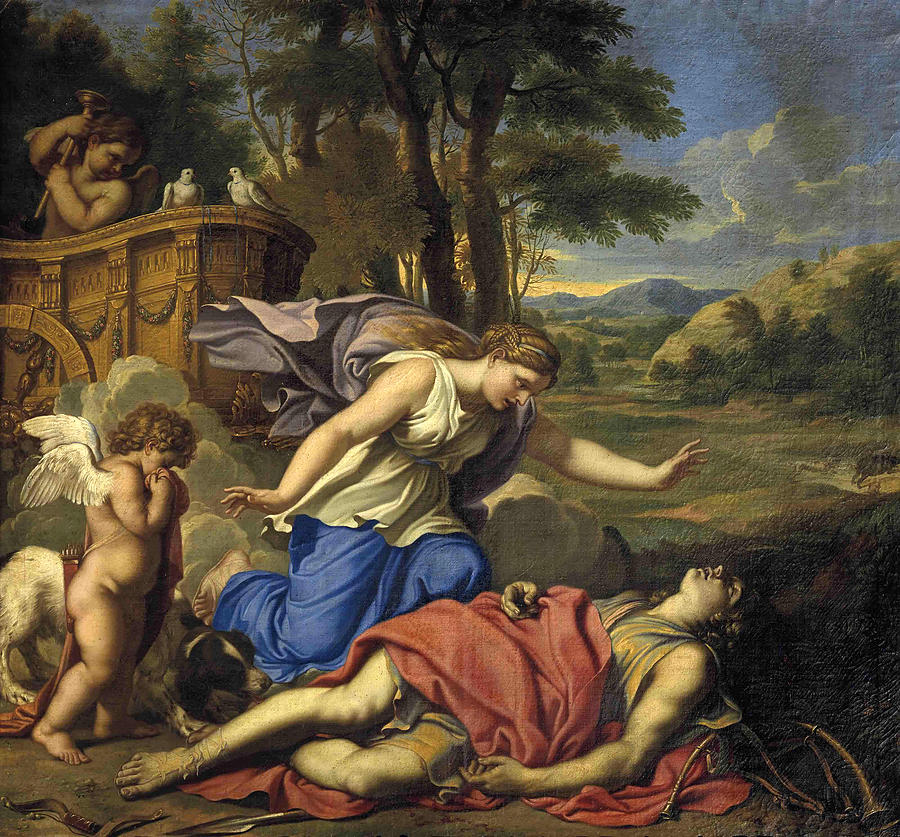
Venus and Adonis Painting by Nicolas Mignard Pixels
Venus and Adonis is a painting by the Italian late Mannerist artist Paolo Veronese, executed in 1580, now in the Museo del Prado in Madrid. The original painting was enlarged in the upper border in the 18th century. This added section was removed in a restoration (c. 1988) so the work recovered the horizontal format. Wikipedia
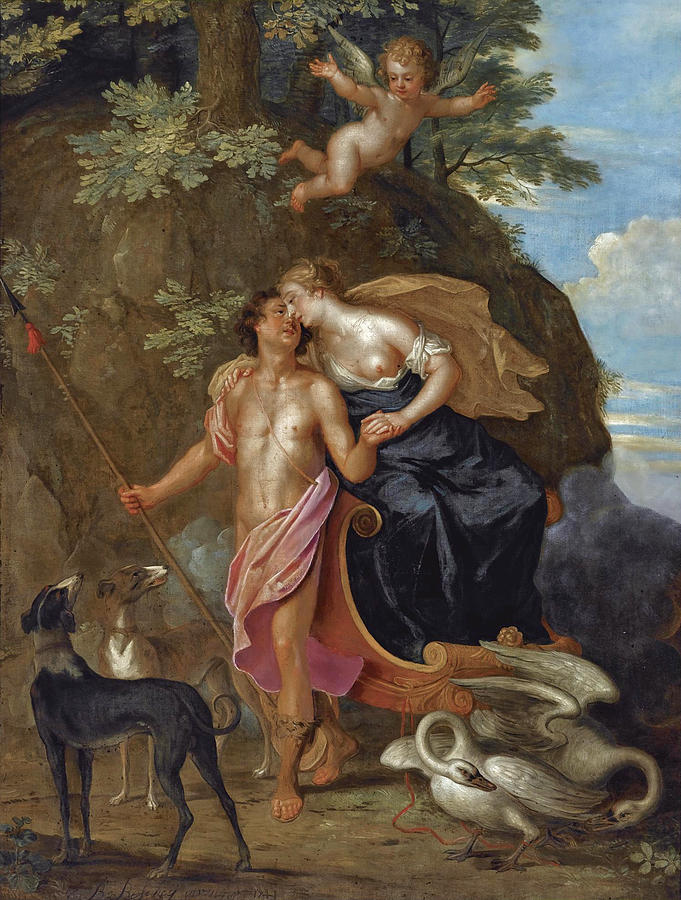
Venus and Adonis Painting by Balthasar Beschey Pixels
Veronese, Paolo (Paolo Cagliari) Verona, 1528 - Venice, 1588. Veronese was trained in his native Verona by a local painter, Antonio Badile (1518-1560), and then by Giovanni Caroto (1488-1563/66). The influence of both these masters appears in his earliest independent works, which were executed around 1546 for local patrons and institutions.

Venus and Adonis, by Filippo Lauri (16231694). Burghley Collections
Artist. Andy Warhol. Nationality. American. Created. 1962. Wiki Views. 8,651. Venus and Adonis is a 1562 painting by Paolo Veronese, now held at the Staatliche Kunstsammlungen in Augsburg.

Huge 16th Century Italian Old Master Venus & Adonis Paolo Veronese eBay
Venus and Adonis (Veronese) People with dogs in art Deutsche Barockgalerie (Augsburg) Paintings in Augsburg Paintings by Paolo Veronese in the Deutsche Barockgalerie (Augsburg) 1560s paintings from Italy Hidden categories: Images from Web Gallery of Art Artworks with Wikidata item Artworks digital representation of 2D work CC-PD-Mark

Venus and Adonis by Nicolas Mignard Wikipedia Mythology art, Baroque painting, Roman goddess
Venus and Adonis is a painting by the Italian late Mannerist artist Paolo Veronese, executed in 1580, now in the Museo del Prado in Madrid. The original painting was enlarged in the upper border in the 18th century. This added section was removed in a restoration (c. 1988) so the work recovered the horizontal format.
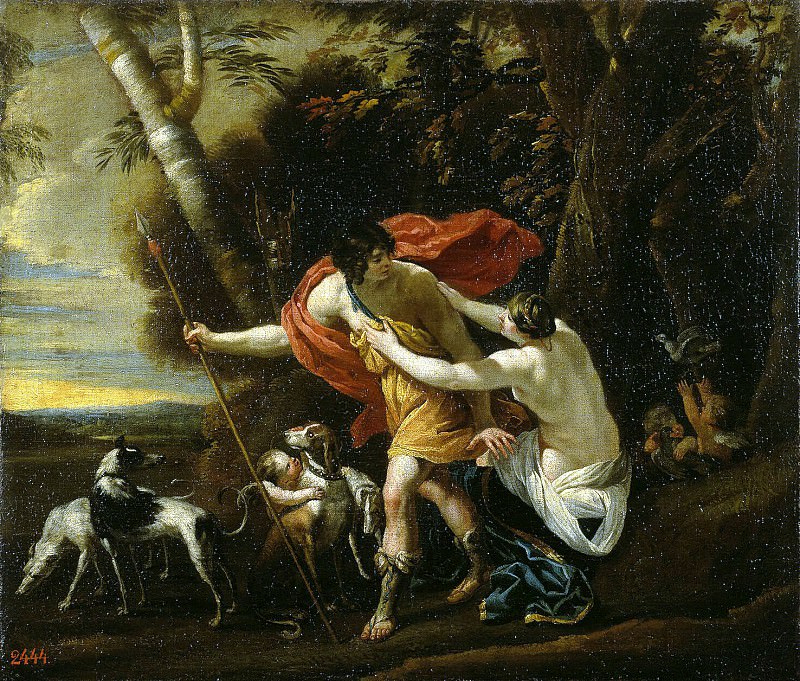
Venus and Adonis — Hermitage Part 05
It is also known that Diego Velázquez, acquired Veronese's Venus and Adonis (c.1580) at some point during his trip to Italy between 1649 and 1651, and, through an intricate composition of figures set in a rigid architectural setting, Veronese's influence can be traced in works such as Las Meninas (1656).

After Paolo Veronese, Venus and Adonis, oil on cloth, unframed, 247 x 220cm (Veronese's original
Patton, Katie. "Veronese and his Workshop: The Case of the Seattle Venus and Adonis." Master's thesis, New York University Institute of Fine Arts, 2012. Látka, Peter. "'All Adonises Must Die': Shakespeare's Venus and Adonis and the Episodic Imagery." In Shakespeare and the Visual Arts ed. Michele Marrapodi.

Paolo Veronese Venus and Adonis 1582 Canvas Gallery Wrapped or Framed Giclee Wall Art Print
Structured data Captions Captions English Venus and Adonis (1580s). Oil on canvas, 162 × 191 cm (64 × 75 in). Museo del Prado, Madrid Summary[edit] Paolo Veronese: Venus and Adonis Artist artist QS:P170,Q9440 Title Venus and Adonis label QS:Lit,"Venere ed Adone" label QS:Lhu,"Venus és Adónisz" label QS:Lhr,"Venera i Adonis"
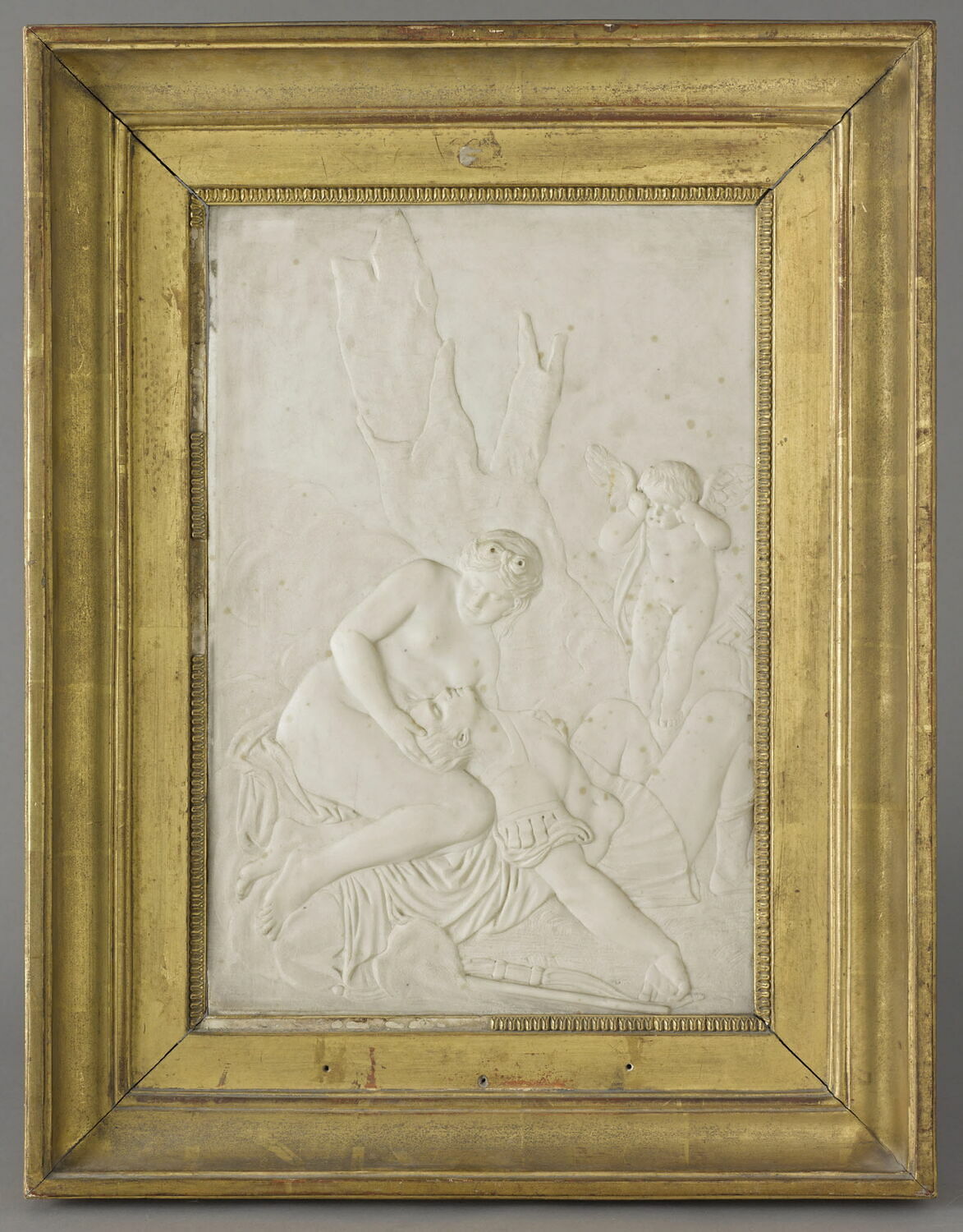
Vénus et Adonis Louvre Collections
Venus and Adonis by Paolo Veronese (1528-1588) (attributed to), from William Morris Gallery. Venus and Adonis. Medium. oil on canvas. Measurements. H 162.5 x W 133 cm. Accession number. BrO57. Acquisition method. gift from Sir Frank Brangwyn, 1935. Work type. Painting. Tags. This artwork does not have any tags yet.

'Venus and Adonis, 1580' Giclee Print Paolo Veronese
Paolo Caliari (1528 - 19 April 1588), known as Paolo Veronese (/ ˌ v ɛr ə ˈ n eɪ z eɪ,-z i / VERR-ə-NAY-zay, -zee, also US: /-eɪ s i /-see, Italian: [ˈpaːolo veroˈneːze,-eːse]), was an Italian Renaissance painter based in Venice, known for extremely large history paintings of religion and mythology, such as The Wedding at Cana (1563) and The Feast in the House of Levi (1573).